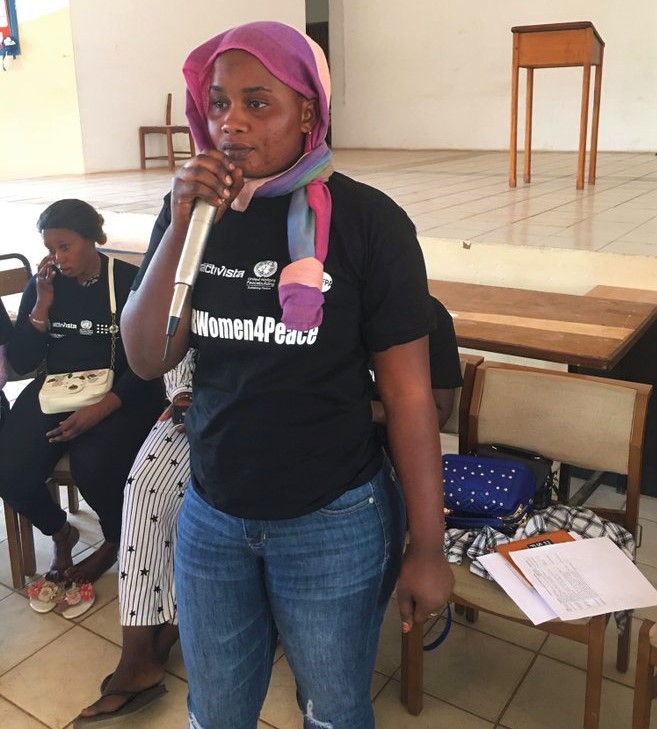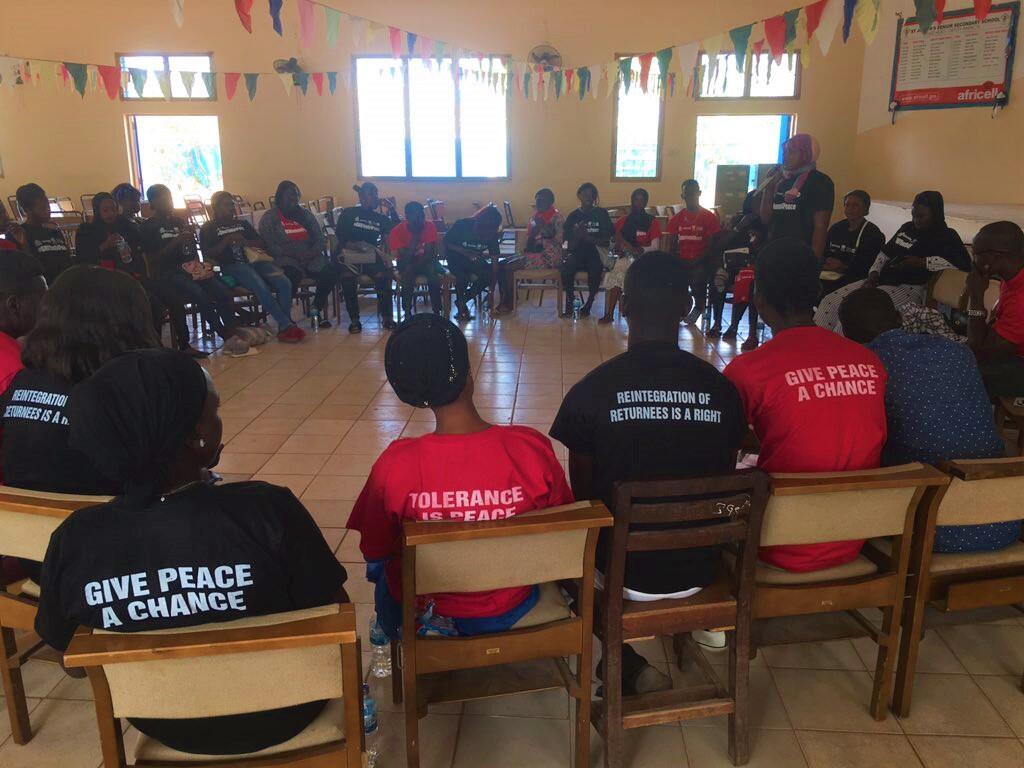“Returnee migrants should be respected and have equal access to opportunities in The Gambia to help in their reintegration, thus reducing discrimination and ensuring peace and stability.” – a vendor at the Serrekunda Market
The issue of irregular migration in West Africa in general and The Gambia to be particular, is characterised by series of contributing factors, including poverty, unemployment, among many others. It is estimated that, West Africa records the highest number of intra-regional migrants and, to a lesser extent, migrants moving towards Northern Africa and Europe, according to the International Organisation for Migration (IOM). As a result, between 2014 and 2018 alone, a recorded number of over 35,000 Gambians arrived in Europe by irregular means (IOM The Gambia). A great number of these emigrants, unfortunately happen to be young people.
Due to this influx and the poor conditions in which some of these migrants live in during transit and upon arrival at their destinations, actors have taken steps to facilitate voluntary return opportunities. Thus, between January 2017 and October 2019, over 4,800 Gambians were provided with return assistance by IOM.
Due to a lack of awareness however, communities may not be very accepting of these returnees and as a result of their (the migrants’) traumatic experiences, there is a critical need to employ reintegration programmes that will facilitate their smooth transitioning back to their communities of origin.
In this light, as part of activities supported by UNFPA The Gambia under the UN Peacebuilding funded project on Reintegration of Returnee Migrants, ACTIVISTA The Gambia, from the 24 to 25 December 2019, organised community shared learning sessions between returnee migrants and resident youth in sixteen (16) communities across the country, namely: Sintet, Tallinding, Banjul South, Banjul North, Faji Kunda, Basse Mansajang, Diabugu, Bantanto, Njaba Kunda, Barra, Jimbala, Kaiaf, Jarra Japineh, Jamali Ganyado, and Samba tacko.
The sessions, which initially targeted 30 youth in each community, making up a total of 480 youth all together, ended up reaching 608 youth people instead, thus exceeding the target. Among the reached number of youth through this activity, 308 were male while 300 were female, including returnees, survivors of human trafficking and resident youth in the various communities.

Conducted in collaboration with the Gambia Returnees from The Backway and the Network of Girls Against Human Trafficking, the shared learning sessions were aimed at helping facilitate the re-integration of returnees in their communities; discourage stigmatisation, and stereotyping of returnees, and build solidarity; inform and provide information to young men and young women on issues of human trafficking.
As part of the sessions, young people were also informed about ways in which they can participate in community decision-making, peacebuilding and conflict prevention processes.
The shared learning sessions provided information to youth on the stigmatisation and stereotyping of returnee migrants, and why such is inhibiting the reintegration processes of returnees.
“We wish our young people had the opportunity to participate in such a forum before they departed for the backway journey”
said Abdul Aziz Kah of Medina Sering Mass, citing the recent incident of a sunken boat along the shores of Mauritania, which claimed the lives of over fifty Gambians, stressing that, this was the worst incident that happened in their community since it was established more than 150 years ago. He mentioned that in fact, about 13 people on the said boat are claimed to have come from the same extended family.
Speaking during the session in Barra, the Chairperson of the Village Development Committee (VDC) stressed that, young people in their community continue to take the backway because they are struggling for survival as there are limited job opportunities available. As a result, these youth he said, depend highly on commercial boat transportation from Barra to Banjul to earn a living, which he stressed is no longer good business due to the efficiency of the ferry service. He called on government and other partners to create employment opportunities for the youth in order for them to be able to sustain their families.
Regarding the reintegration of survivors of human trafficking, members of the target communities pledged to sensitise their colleagues and peers to disengage on stereotyping, and stigmatisation of survivors of human trafficking.
The highlight of the shared learning sessions, was in one of the communities, where Binta Sey, a woman attested that her daughter is currently being helped by an agent to obtain a passport and get a job in Kuwait but as a result of her participation in the session, she was able to understand the dangers involved in this journey and immediately called her daughter to discontinue the process. In her words
“What if I had not come here? My daughter could have ended up being enslaved or even killed if she went on this journey.”
Modou Jagne, a returnee migrant confessed that the backway journey is a perilous one, citing his personal experiences on the journey:
“I went through hell fire during my journey, I have seen dead people, I have seen people being killed in cold blood, I have been starved for more than 4 days without food, I have been beaten, I suffered and suffered but I thank God for bringing me back and reuniting me with my family. Now I am in business and I sell second-hand clothing and I am ok with that.”


